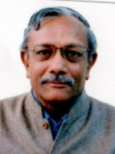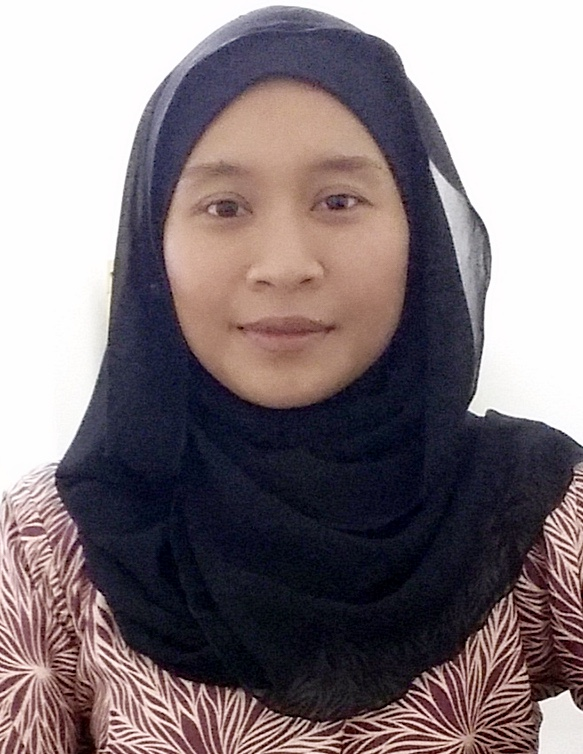|
CSBio 2016 Speakers
Keynote Speaker |
 |
|
Prof. Volkhard Helms
Center for Bioinformatics, Saarland University,
Germany
Personal Website
volkhard.helms@bioinformatik.uni-saarland.de
Biography
Volkhard Helms is a full professor at the Center
for Bioinformatics, Saarland University,Germany since 2003. He did his PhD research at
EMBL Heidelberg, Germany and obtained a diploma
in physics from the Ludwig Maximilian University
of Munich, Germany. Subsequently, he held
positions at UC San Diego and the MPI for biophysics in
Frankfurt, Germany. His research group in
Saarbruecken works in the areas of bacterial
resistance and cell fate transitions. They
develop and employ computational methods ranging
from molecular modeling of biomolecular
interactions to data mining of genomic datasets.
He has published more than 150 reviewed articles
in the areas of biomolecular dynamics and
interactions, structure and function of
transmembrane proteins, gene-regulatory and
protein interaction networks.
Title of Speech:
"Regulatory
and interaction networks associated with
cell fate transitions"
Abstract:
Modern high-throughput genomics and
proteomics techniques allow researchers
to characterizecell differentiation and disease
processes at unprecedented levels of
detail. For example,in normal breast cells about 130.000
interactions take place between
different pairs of proteins.In matched breast cancer tissue, about
10.000 of these interactions are
"rewired", because e.g.one or both interaction partners are no
longer expressed or due to alternative
splicing.One important task in modern
bioinformatics is to identify
statistically significant transitions that occur at higher frequency than
expected by chance and their possible
biological meanings.The talk will present our recent work on
breast cancerogenesis and for different
lineages ofhematopoiesis, namely the
differentiation from blood stem cells
into the different types of
blood cells. Differentiation and
diseases processes are typically
regulated by so-called
gene-regulatory networks formed by
transcription factors, microRNAs and
target genes. Our
webserver TFmiR enables researchers to
identify partial gene regulatory
networks around a set
of deregulated input genes and microRNAs
and to identify statistically
overrepresented 3-node
and 4-node motifs in the graph. Our
combinatorial algorithm DACO combines
protein interaction
data and domain-domain interaction data
and constructs multi-protein complexes
containing e.g.
multiple transcription factors. In this
way, data integration provides deeper
biological insight
into the complex regulatory machinery of
cells. In summary, the talk addresses
the problem of
not being able "to see the forest for
the trees", and how the identification
of small local
building blocks may aid in this. e.g. in
hundreds of breast cancer patients
rather than enumerating all of the
differences.
Although much focus has been applied to
the facet of data mining in big data,
less focus has been put on the
foundations of big data upon which data
mining is based. These foundations
include transforming raw data in a wide
variety of formats and, if any,
structures, to a consistent and
meaningful schema upon which data mining
may operate. These transformation
techniques will be briefly discussed.
Application of some of these techniques
on an emerging source of raw data,
social media, will be demonstrated
|
 |
|
Prof.Shao Li
Deputy Director, Bioinformatics Division,
Tsinghua National Lab for Information Science &
Technology
Tsinghua University, Beijing 100084, China
Personal website
Biography
Shao Li is a tenured professor at Tsinghua
University and the deputy director of Bioinformatics
Division, Tsinghua National Laboratory for
Information Science and Technology. He received the
MD degree from Beijing University of Chinese
Medicine in 2001. From 2001, he has been devoted to
the exploration of traditional Chinese medicine
(TCM) from a network perspective, and the
development of network pharmacology, bioinformatics,
and systems biology methods. He is the founder and
chairman of Specialty committee of network
pharmacology, World Federation of Chinese Medicine
Societies (WFCMS), and the vice chairman of
Specialty committee of network pharmacology, Chinese
Pharmacological Society. He has published over 100
papers, and held over 10 US and China patents. His
works were highlighted by Nature China, F1000, and
made the headlines in The Wall Street Journal, which
was selected as one of “The World top 10 news of TCM
in 2014” by WFCMS. Prof. Li won the National
Outstanding Young Scientist Award (2012), Grand
Challenges 2015-Young Scientists (2015), National
Science & Technology Award (2004), National
Education Award (2009), and National Excellent
Doctoral Dissertation (2003) in China.
Title of Speech:
"Network-based TCM precision medicine"
Abstract:
Traditional Chinese Medicine (TCM) has a long
history of viewing and treating an individual
patient as an imbalanced system to guide the
patient-tailored treatment by using numerous herbal
formulae, making TCM a kind of traditional precision
medicine. The holistic philosophy of TCM shares a
lot with the key idea of systems biology, and also
meets the requirement of overcoming complex diseases
in a systematic manner. However, it is challenging
to access such a holistic medicine by current
reductionist “one target, one drug” approach due to
the complexity nature not only in the chemical
compositions of herb formula, but also in the
biological systems of individual patients. To
understand TCM from a systems perspective, we
proposed a new approach of “network target,
multi-component drug” and created a set of network
target analysis algorithms to infer the association
among herbs, compounds, biomolecules, phenotypes,
and diseases and/or TCM syndromes. The follow-up
clinical and experimental investigations
demonstrated the effectiveness of our network target
approach in discovering biomarkers, bioactive
compounds, as well as molecular mechanisms for TCM
holistic diagnosis and treatments in inflammation
diseases and cancer. The results suggest that the
network approach promises to be an innovative way to
understand TCM, narrow the gap between Eastern and
Western medical practices, and eventually achieve a
systematic precision medicine.
|
 |
|
Prof. Anamik Shah
Vice-Chancellor of University Gujarat Vidyapith,
Ahmedabad
President of Indian Society of Chemists and
Biologists, India
Biography
President, Indian Society of Chemists &
Biologists
Vice-chancellor, Gujarat Vidyapith, Ahmedabad,
Gujarat, India.
In charge, Center of Excellence for Drug
Discovery
Professor, Department of Chemistry
(UGC-SAP-DSA-I and DST-FIST Supported),
Saurashtra University, Rajkot - 360005 (INDIA)
Professor Anamik Shah is currently attached to a
heritage and historical Gandhian University,
Gujarat Vidyapith, Ahmedabad, Over and above his
academic pursuits,Professor Shah has worked in
diverse fields of Science & Technology,
Spearheaded several scientific organizations &
now sharing responsibility of few Scientific
Institutes, Research Centers and more recently
many rural centric Gandhian educations &
extension organizations attached with Gujarat
Vidyapith,Ahmedabad.
Title of Speech:
"Antitubercular
heterocyclic NCEs through computer aided tools:
Review of A decade long Journey"
Abstract
Tuberculosis is a global challenge across the
boundaries of rich and poor nations alike due to one
third population of the entire globe is infected
with latent Mycobacterium tuberculosis. Increasing
case of drug resistance is a big threat to the
current treatment. Identification of new leads and
drugs is a herculean task like finding a needle in
haystack, where bioinformatics and chemoinformatics
plays an important role in drug discovery research
by assisting medicinal chemists in designing new
molecules and its virtual evaluation. Involvement of
computer aided drug design (CADD) is notable due to
its great success in recent years. Also, open source
platform, through which many institutes and
organizations are connected, is endowed to provide
affordable healthcare. Present lecture will address
the efforts of our research group towards
development of anti-TB agents through synthesis of
focused libraries and molecular modelling. Some
molecules are identified as promising leads and
currently at the advanced level of screening,
results of which will be discussed.
|
Workshops/Tutorials |
 |
|
Siti Azma Jusoh, PhD
University of Technology MARA, Malaysia
Workshop on Protein Modeling, Structure-based
Function Prediction & Applications
Abstract
In this workshop, participants will
learn basic principles in structural
bioinformatics and applications of
protein modeling in structure-based
function prediction, genomics (e.g.
SNPs, mutation effects), and early drug
discovery phase (e.g. protein-ligand
binding). Participants will have a
hands-on session to use free web-based
programs to perform sequence analysis,
secondary structure prediction and
homology modeling, so that they can
straight away apply these skills and
knowledge in their research works
without depending on installed software.
In addition, we will also demonstrate
how to use commercial softwares when
dealing with challenging proteins. By
end of this workshop, participants
should be able to make own decision on
protein modeling procedures, select
which programs that best suit the
available data, aware of the method
limitations, and be able to present
results in research articles.
|
 |
|
Prof. Jonathan Hoyin Chan
King Mongkut's University of Technology Thonburi,
Thailand
Title of Speech:
"Identifying Functional Modules using MST-Based Weighted Gene Co-Expression Networks"
|
|
|
|
|
|
CATEGORIES




|
|
|



 Home
Home 







